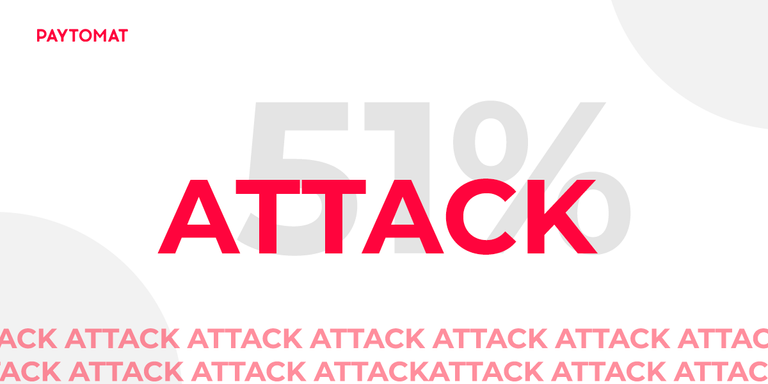
Why do we hear more and more about the 51% attacks?
First, let’s see, if we are on the same page about the terminology, shall we?
A 51% attack – also known as a double-spend attack – is a type of an attack on a blockchain, where the majority of hashing (or computing) power is controlled by a single entity AND used to spend crypto on that blockchain several times. [https://www.investopedia.com/terms/1/51-attack.asp]
Imagine going to the local shop, buying iPhone and then having all the money you sent back in your wallet. Hence, you end up possessing both iPhone and the money, which you can later spend and re-spend as much as you wish.
Now, back to our topic
The most recent attack with reorganization of the blockchain is Ethereum Classic. In total, Coinbase recorded double spending of 88,500 ETC, which was approximately $500,000 at the exchange rate of 6.1.2019. More than 100 blocks in the network were reorganized by this attack, which is about 15 minutes of real-time operation of the blockchain.
This is not the first case of a successful attack on the PoW network. This can actually afflict almost any blockchain. Moreover, check https://www.crypto51.app for detailed analysis of most popular coins and their vulnerability. In practice, the size of networks such as Bitcoin and Ethereum would make a 51% attack way too expensive. But smaller ones, like Bitcoin Gold was hit with a similar 51% attack in May 2018. That same month, Verge suffered the third in a string of double-spend attacks. The problem with all such networks is that 100% of their mining capacity is a very small part of such equipment in the world. it is extremely easy for an attacker to find sufficient power either by cloud mining or turning some of the big miners to his side.
Why this issue is so important?
See, 51% attack is the most unethical, as it spoils the reputation of a coin (at least, for some time) and it eradicates the mass adoption of a blockchain-based projects as a whole. The more unprofitable Bitcoin and Ethereum mining becomes, the more chance that projects with the same algorithms (forks and other technologically connected coins) would be attacked. Many companies are now torn-apart with greed so they start cannibalizing what they can get to. The only chance to survive is to work on the adoption and do the best for an ecosystem to flourish. That’s a meritocracy we were offered by Nakamoto.
Also shows why mining alternatives like Proof of Stake and DPOS could prove to have some “superiority” for scaling and security, right?
Posted using Partiko iOS
In one way yes, one way no.